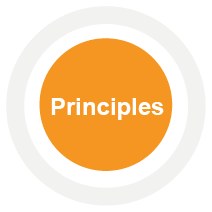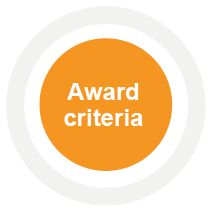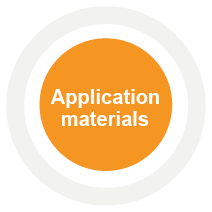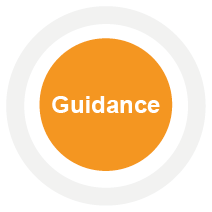
The revised UK Athena Swan Charter – or the ‘transformed Charter’ - has been developed in consultation with sector practitioners; equality, diversity and inclusion (EDI) champions; and the charter’s governance committee. The changes are based on the recommendations of an independent review led by the Athena Swan Steering Group.
The transformed Charter builds on the strengths of the existing framework to create a Charter that is more flexible, transparent and supportive.
Benefits of the transformed Charter include:
• greater focus on autonomy and flexibility
• reduced administrative burden for applicants
• developmental and supportive approach.
Access Athena Swan member resources
To make it easier for you to find everything you need, we have moved our guidance, templates, FAQ document and other resources to support your Athena Swan Charter award submission to the Athena Swan Member Network Group on Connect. These resources are only available to members via Connect.
If you are already a member, you can log in here, or sign up to access the group here.
The framework used to support and transform gender equality within higher education (HE) and research has undergone a paradigm shift from prescription, to autonomy and flexibility.
Diversity monitoring data and the UK Athena Swan Charter
We have revised our data monitoring guidance to give more clarity when collecting data that relates to sex as a protected characteristic and the Equality Act 2010, and when collecting data for work to create a wider inclusive culture.
Equality Charters and Freedom of Speech Consultation
Academic Freedom and Freedom of Speech are now explicitly referenced in the Charter, and Advance HE will be publishing new guidance for institutions in early autumn. This provides a mechanism to support universities so that Freedom of Speech and Academic Freedom can be appropriately considered and embedded through the Charter.
Key enhancements of the transformed UK Athena Swan Charter
Below are the key areas of the Athena Swan framework that have undergone a transformation.

Supports greater inclusivity for people in all roles, of all gender identities, and those facing intersectional inequalities. It also empowers participants to make active commitments in line with their gender equality goals, as well as recognise and reward gender equality work.

Provides greater clarity and transparency on expectations at each award level, including decision-making at assessment, and enabling greater flexibility for applicants to focus on priority areas.

More streamlined, reducing the administrative burden by more than 50% for applicants enabling greater flexibility to focus on priority areas. With an introduction to the standardised departmental survey, it empowers applicants to focus on the assessment of culture.

Increased clarity and professionalisation of panel roles, supported by enhanced live training, consistency through the adoption of a new scoring rubric and new processes for minor and major revisions.

Increased guidance to provide additional developmental support for applicants including pre-application support, clear written guidance, events and specialised team support.
Interviews
Athena Swan panel Chair members Sarah Guerra, Director of Equality Diversity & Inclusion at Kings College London, Matthew Gooch, Head of Equality, Diversity & Inclusion at University of East Anglia and Mariella Giancola, Head of Human Resources at British Antarctic Survey talk about their involvement in the transformed UK Charter.
You can watch the three video interviews below.
We also interviewed Emma Hughes, Equality Advisor at Swansea University about the Athena Swan Charter.
What is your involvement with Athena Swan?
I have recently been appointed an Athena Swan panel reviewer, for the first time. As a HR Equality Advisor, at Swansea University, I provide professional expertise to institutional and departmental Athena Swan applications and help embed the Charter principles into everyday processes.
What changes do you want to see made for gender equality in higher education and research?
The removal of structural inequalities for all gender identities across higher education and research, to ensure all staff and students have the opportunity to succeed and thrive throughout their career/education.
How do you think the transformed Charter will make an impact on gender equality?
It's really encouraging to see more of a focus on support, and an increase in providing guidance to institutions in the transformed UK Charter. In order to make real progress for gender equality, in higher education and research, it’s important that we all work together across the sector to share best practices and to learn from each other. The transformed UK Charter provides us with a mechanism for doing so.
Transformed Athena Swan Charter principles
Transformed Charter principles were published in November 2020. Members are invited to consider and commit to these new principles ahead of submitting their first transformed charter application.
Download and complete this letter to be printed on your institution/department/directorate/institute’s headed paper and return to Athena.Swan@advance-he.ac.uk
The transformed UK Athena Swan Charter pilot schemes
As part of the transformed UK Athena Swan Charter we have developed a new culture survey that provides departmental applicants with a common approach to assessing their culture and identifying key gender equality challenges. Departments from Higher Education Institutions, who are planning to run the culture survey in 2021/22, have had the opportunity to join the pilot scheme. The pilot aims to:
- Provide support to early adopters of the departmental culture survey in running the survey and analysing their findings;
- Evaluate the effectiveness of the survey as a tool for assessing how inclusive a member’s culture is for people of all genders;
- Identify any further support or guidance members may need in surveying their staff and evaluating their culture.
Pilot participants will be provided with support in implementing the culture survey, networking opportunities and opportunities to provide feedback to Advance HE, via a range of workshops between November 2021 and June 2022. The outcome(s) of the pilot will be published in autumn 2022.
We have also developed standalone PTO Directorate UK Athena Swan application forms, which is a significant step in ensuring the Athena Swan charter promotes gender equality across the breadth of higher education. Professional, Technical and Operational Directorates, who are planning to make a submission prior to the end of the 2022/23 academic year, have had the opportunity to sign up to piloting the new application forms. The pilot aims to:
- Provide support to early adopters of the PTO directorate framework in using the framework and achieving Athena Swan awards.
- Evaluate the effectiveness of the PTO directorate framework and ensure it is fit for purpose for wider use.
Pilot participants will be provided with support in adopting the framework, networking opportunities and opportunities to provide feedback to Advance HE, via a range of workshops between November 2021 and November 2023. The outcome of the pilot will be published in early 2024.
More about the transformed UK Athena Swan Charter
The Athena Swan transformation journey
Guidance for Project Juno Award holders converting to Athena Swan in the UK
To access Athena Swan Charter's application guidance, forms, templates and other resources, please log in or join the Athena Swan Member Network Group on Connect (members access only). These resources are only available to members via Connect.